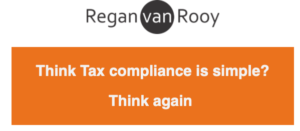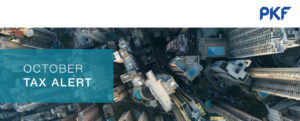A field audit outside South Africa – can SARS do this?
ENSafrica
Peter Dachs and Bernard Du Plessis
South Africa
April 14 2015
Tax authorities worldwide have certain powers aimed at enabling them to verify information submitted by taxpayers and the administration of tax legislation in their respective jurisdictions. Chapter 5 of the Tax Administration Act No. 28 of 2011 (“TAA”) grants the South African Revenue Service (“SARS”) information gathering powers which include the power to inspect, verify, audit and conduct criminal investigations. A contentious issue is whether SARS has the authority to exercise its information gathering powers vis-à-vis a controlled foreign company (“CFC”) and in particular, does SARS have the power to conduct a field audit at the premises of a CFC in a foreign jurisdiction?
A CFC is a foreign company where more than 50{780f53c297e2c008074d23b865a0ce0b35a4f08852d8e1e49466a5a902c4e44e} of the total participation rights or voting rights in that company are directly or indirectly held or exercisable, respectively by one or more persons that are tax resident in South Africa. The CFC itself is not subject to tax in South Africa and therefore not a South African taxpayer. The net income of the CFC (a notional amount) is, however, included in the (taxable) income of the CFC’s controlling South African shareholders.
Section 46 of the TAA deals with requests for relevant material (information, documentation or things that in the opinion of SARS are foreseeably relevant to the administration of tax legislation). It provides that SARS may, in relation to a taxpayer, require the taxpayer or another person to submit relevant material (whether orally or in writing) that SARS requires. Section 48 of the TAA deals with field audits and criminal investigations and provides that an authorised SARS official may require a person to make available at the person’s premises specified in the notice, relevant material that the official may require to audit or criminally investigate in connection with the administration of a tax Act in relation to the person or another person. The notice must among other things indicate the initial basis and scope of the audit or investigation.
It goes without saying that SARS requires information gathering powers to be able to enforce tax legislation and collect revenue which is necessary for the upkeep of the country. However, do these powers entitle SARS to enforce its powers extra-territorially in terms of domestic tax legislation?
Although SARS is of the view that the wording of domestic law empowers them to perform a foreign field audit, it is our considered view that for a number of compelling reasons neither section 46 not section 48 provide SARS with such power in respect of an entity over which South Africa does not have sovereign jurisdiction. Any such action by SARS will be unlawful.
SARS may obtain information in respect of a foreign company by relying either on a bilateral or multi-lateral tax convention to which SA is a signatory and which is in force and effect. With effect from 01 March 2014, SA became a signatory to the Convention on Mutual Administrative Assistance in Tax Matters (the “Convention”). More than 85 countries are currently signatories to the Convention. The Convention facilitates international co-operation among tax authorities.
In terms of the Convention, parties shall exchange any information that is foreseeably relevant for the administration or enforcement of their domestic laws which concerns particular persons or transactions at the request of a State. The Convention details the manner in which tax examinations abroad should be conducted. In terms of the Convention, SARS would be required to request the tax authority of the CFC’s foreign jurisdiction to conduct a tax examination / audit of the CFC. The tax authority of the foreign jurisdiction may accede to or decline such request. Should the tax authority of the foreign jurisdiction accede to the request, SARS would be allowed to have a representative present “at the appropriate part of a tax examination”. This is very different to SARS conducting a field audit in the foreign jurisdiction with a full team of people. All decisions with respect to the conduct of the tax examination are to be made by the tax authority of the foreign state and will be subject to the laws and practice of that other state. The powers of SARS under the Convention may thus limited in comparison to its powers under the TAA.
In light of SARS’ apparent expansive views on the extent of their powers vis-à-vis information gathering, it is in the interest of any entity that is the subject of a SARS audit to seek professional advice to ensure that its rights are sufficiently protected.






